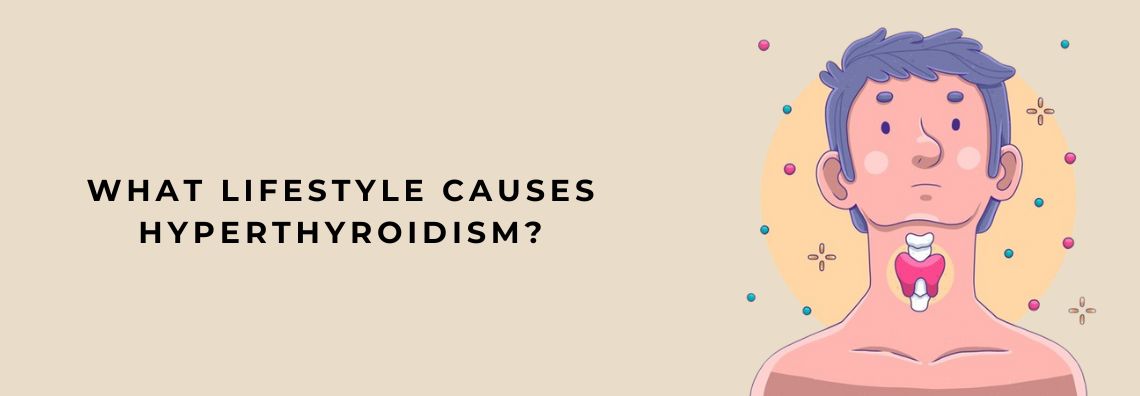
Hypothyroidism is a lifestyle disorder disease that over produces a hormone from the butterfly shaped gland in the neck means thyroid. In this disease, a hormone called thyroxine is produced too much in the body causing increased metabolism. It has symptoms from which it can be identified even before the tests while older people don’t have any symptoms. It can be treated by some medicines and in some cases by surgical procedures.
What are the symptoms and signs of hyperthyroidism?
A hyperthyroidism disorder can cause a wide range of symptoms in the body, although it’s unlikely that a person will experience all of them.
The symptoms may be experienced gradually or suddenly. For some patients they’re mild, but for others they can be severe and affect their life significantly.
Some common symptoms of hyperthyroidism are:
- Nervousness and anxiety
- Hyperactivity
- Mood swings
- Difficulty in sleeping
- Fatigued
- Heat sensitivity
- Weakness in muscles
- Diarrhoea
- Peeing more often than usual
- Constant thirst
- Itching
- Lost of interest in intimacy
Some common signs of hyperthyroidism are:
- Swelling in neck area
- Unusual heart rate
- Twitching pain
- Warm skin and excessive sweat
- Redness in hand palms
- Looseness of nails
- Raised and itchy rashes
- Hair loss or hair thinning
- Weight even after increased appetite
- Problems in eyes such as redness, dryness or blurred vision
When to consult a general practitioner?
Consult a general practitioner if you have symptoms or signs of an overactive thyroid. It might be useful to make a list of all your symptoms and show it to a general practitioner.
These symptoms and signs can have a number of reasons. But a specific blood test can be helpful to determine whether they’re caused by a thyroid problem or not.
List of Lifestyle Factors that Can Contribute to Hyperthyroidism:
1. Smoking:
Smoking is directly linked to an increased risk of Graves’ disease and undoubtedly the most common cause of hyperthyroidism. It can even worsen the symptoms of hyperthyroidism as tobacco contains some sort of substances which affect the thyroid gland in the neck, by causing inflammation and interfering with the absorption of iodine along with the production of thyroid hormones.
2. Inappropriate sleep:
Insufficient sleep and excessive sleep can instantly increase the risk of thyroid disorders which cause hypothyroidism. It simply means that sleeping 7 hours and more can contribute to hypothyroidism. Sleeping deprivation can make changes in the hormones which regulates the production of hypothyroidism. It is recommended to sleep in a dark place to boost the production of melatonin for a restful sleep.
3. Healthy diet:
Foods with low nutritional value are one of the main root causes of thyroid disorders as it is a nutrient-dependent gland and the deficiency in these nutrients will negatively affect the thyroid hormone production causing hyperthyroidism.
A well-balanced diet is very essential for lifelong thyroid health to maintain thyroid glands. It can be achieved by increasing your daily intake of the following:
- Antioxidant-rich fruits
- Vegetables
- Lean meat
- Whole grains
- Probiotic foods
- Omega-3 fatty acids
- Extra virgin oils such as coconut oil, olive oil and avocado oil.
One more important thing is it would be helpful if a person tries to limit consumption of processed foods as they contain high trans fats, sugar, preservatives and even if they are labelled as “Healthy or Sugar free”.
4. Stress Management
Stress has become very common in this modern environment. Poor handling of stress might not only harm general health and well-being but also it can negatively affect the thyroid gland. When a person is stressed, the body releases the cortisol hormone by making it more difficult for the thyroid gland to generate the necessary hormones. Stress can also slow down thyroid function. Try to improve mental health as much as possible by exercising, running, jogging, meditation and walking.
Avoid coffee as it contains caffeine and can lead to variety of adverse health effects, which includes:
- Restlessness
- Irritability
- Headaches
- Insomnia
- Dehydration
- Anxiety
5. Current or Recent Pregnancy
Hyperthyroidism is very common in women when they are pregnant. However, it is going to be improved after the first trimester of pregnancy during the second trimester and the third trimester. It happens at this time because some parts of women’s bodies work less during the pregnancy. If left untreated then it can cause miscarriage, premature births, low birth weight, congestive heart failure and preeclampsia. There are some signs and symptoms of hyperthyroidism that often occur in normal pregnancies, including faster heart rate than usual, trouble in dealing with heat, and too much tiredness.
Here are some other signs and symptoms can help to identify hyperthyroidism:
- fast and irregular heartbeats
- shaking hands
- unexplained weight loss or even failure to have normal pregnancy weight gain
Summary
This is a lifestyle disease and can be managed by making healthy changes in lifestyle. It occurs in the body when thyroid glands produce too much hormone. In this condition thyroid glands get overactive by speeding up the metabolism of the body. It can be identified by its symptoms and immediate medication is to be taken as early as possible. A physician can treat this disease as endocrine disorders treatment.